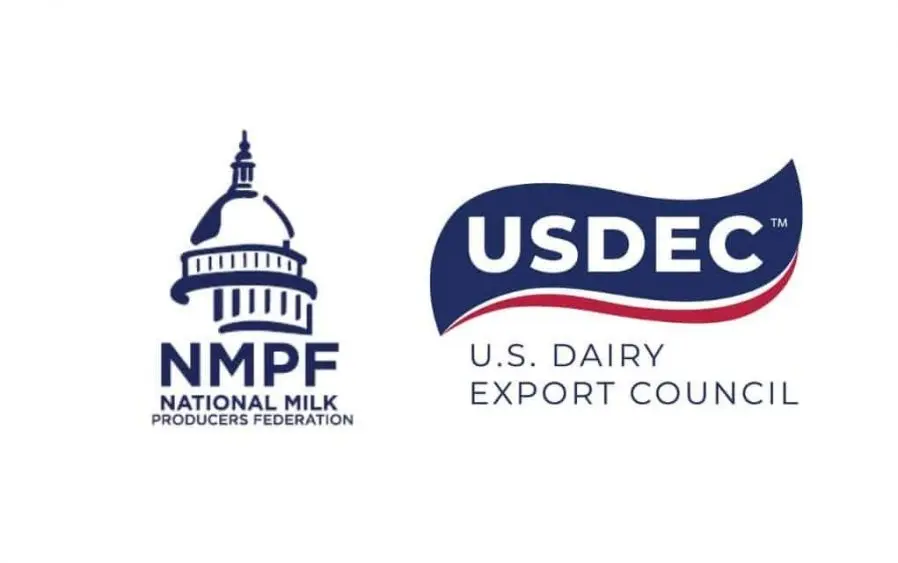ARLINGTON, VA – National Milk Producers Federation (NMPF) and U.S. Dairy Export Council (USDEC) Executive Vice President for Policy Development & Strategy, Jaime Castaneda, and Senior Vice President for Global Economic Affairs, Will Loux, testified today before the U.S. International Trade Commission (USITC) on the need for the U.S. government to hold trading partners accountable for policies that disrupt global markets for nonfat milk solids products and harm U.S. dairy producers and exporters. Chief among those concerns were Canadian dairy policies.
Throughout the hearing, Castaneda and Loux highlighted how trade distorting policies and subsidies from Canada, India, Turkey, the European Union, and others have driven artificially low-priced exports from those competitors onto global markets, undercutting U.S producers. The remarks complemented a set of in-depth comments filed on July 16.
“The U.S. is an extremely competitive player in world dairy markets,” said Castaneda. “However, Canada’s actions are one of the major policy factors undermining fair competition in those markets. We encourage this investigation to include a focus on the full breadth of trade distorting policies that Canada and other major suppliers employ that can undercut U.S. producers and exporters. It is critical that the United States takes steps to curb these anticompetitive practices during the 2026 USMCA review process.”
The hearing was part of an ongoing USITC investigation into the global nonfat milk solids market and export competitiveness. As requested by the U.S. Trade Representative, the inquiry and subsequent report will analyze government policies and programs that Canada and other major suppliers maintain that affect the production and exports of nonfat milk solids products from major dairy producing countries. NMPF and USDEC have been urging the U.S. government to take steps to address Canada’s continued attempts to circumvent its trade commitments that were intended to limit the offloading of artificially low-priced dairy proteins onto the global market. USTR’s initiation of this investigation was a key step in that direction.
“Canada’s exports of protein concentrates and isolates have more than doubled since the implementation of USMCA,” said Loux in his remarks. “India’s subsidized SMP exports were as high as 45,000 metric tons in 2021 and were sold at a 10% discount compared to the global average. Turkey’s whey exports—which have quadrupled in the last two years by selling at roughly half the global average—are increasingly moving beyond the Middle East and into critical export markets for U.S. manufacturers, including Southeast Asia and China. It is essential that the United States push back against dishonest trade practices and ensure that U.S. dairy producers can compete on a level playing field around the world.”
USITC is scheduled to submit its report to USTR by March 23, 2026.
Complementing this effort, NMPF and USDEC are dedicated to working with the Administration and Congress to leverage the investigation’s findings through the 2026 USMCA Review process to ensure that U.S. dairy producers are delivered the market access they were promised and fully benefit from the agreement moving forward.





